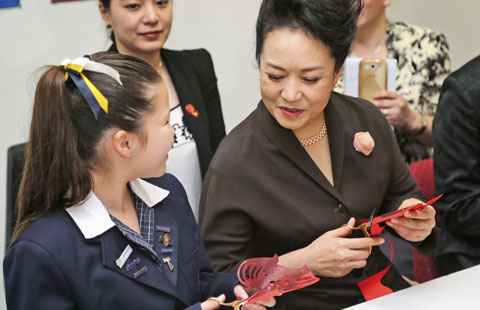Migrants struggle with life in cities, says report
Updated: 2014-11-19 08:12
By Shan Juan(China Daily)
|
||||||||
China had 245 million migrants at the end of 2013, representing more than one-sixth of the national population.
But many migrants from rural areas struggle to integrate into urban society, according to a report released on Tuesday by the National Health and Family Planning Commission.
Eighty percent of the migrants came to cities in search of better-paying jobs, said the Report on China's Migrant Population Development 2014, but their access to essential public services lags behind their urban peers.
To bridge the gap, the health authority has introduced a nationwide program to give rural migrant workers in urban areas equal access to basic health and family planning resources, according to Wang Qian, head of the commission's migrant population department.
Currently, they can access services in the cities where they live, establishing personal health files, getting immunizations, accessing reproductive healthcare and receiving free contraceptives, he said.
In 2012, 59.2 percent of migrant women gave birth at hospitals in their city of residence, up 7 percent over 2011, the report said.
But nearly 40 percent of the pregnant migrants did not receive the five prenatal examinations usually required before delivery, it said.
Liu Qingchun, deputy director of the health and family planning commission of Wuhan, Hubei province, said that "given their high mobility, it was hard to reach them regularly for service delivery".
"The merging of health and family planning authorities last year has somewhat changed the situation for the better," Liu said.
Wang agreed, but added that more effort should be made toward emotional and social factors as well. Rural migrants, the report found, struggle to create a sense of belonging, safety and dignity in the cities.
With economic conditions improving, "they develop new demands such as self-identity and social and cultural acceptance in cities," Wang said.
A 2013 survey conducted in eight Chinese cities, including Shanghai, Suzhou, Wuhan and Xi'an, found that migrants report more difficulty in adapting to local social and cultural life in richer cities.
Also, rural migrants born in the 1990s find it harder than their older counterparts to achieve a sense of belonging, it found.
They are usually better educated and have had greater exposure to the outside world, largely via the Internet, so "they tend to aim high but lack the experience, practical skills or patience to achieve," Wang said.
shanjuan@chinadaily.com.cn
(China Daily 11/19/2014 page4)

 100 photographers' focus on Macao
100 photographers' focus on Macao
 Peng visits school for girls in Sydney
Peng visits school for girls in Sydney
 Ancient temple prepares for ritual
Ancient temple prepares for ritual
 Top 7 Chinese Internet brands in 2014
Top 7 Chinese Internet brands in 2014
 First Chinese lion dance to join Thanksgiving Parade
First Chinese lion dance to join Thanksgiving Parade
 China then and now through a lens
China then and now through a lens
 Stock Connect provides new opportunities
Stock Connect provides new opportunities
 India-China joint counterterrorism training exercise in Pune
India-China joint counterterrorism training exercise in Pune
Most Viewed
Editor's Picks

|

|

|

|

|

|
Today's Top News
Nations join hands for Antarctic study
China loosens outbound investment control
Social network in Russia eyes China
ChinaSF celebrates 6th anniversary
China then and now through a lens
China sends record number to study in US
Chinese firms starting to think outside the box
Apple taps UnionPay for China link
US Weekly

|

|







